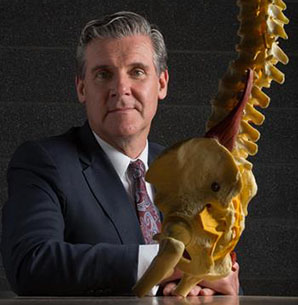News
Riluzole in Acute Spinal Cord Injury study - RISCIS reaches significant milestone with 100 patients enrolled

A major clinical trial by AOSpine Knowledge Forum Spinal Cord (KFSCI) has just surpassed its 100-mark of patients enrolled. "This is a significant milestone", principal investigator (PI) Dr. Michael Fehlings congratulates Drs. Christopher Shaffrey, Karl Schmitt and James D. Guest, whose latest patient enrollments brought the total up to 102 patients. Dr. Fehlings expects the multi-center, randomized, placebo-controlled, double-blinded trial on the efficacy and safety of the drug Riluzole to reach its final enrollment target in five years. Fehlings trusts the study will ultimately lead to improved outcomes for patients with spinal cord injury (SCI), with an effective therapeutic treatment to complement surgery. The trial shows considerable promise to enhance the neurological outcomes and quality of life and reduce the costs of care for individuals with acute SCI. Read the full article on the Aospine Foundation website>>

If your brain is the computer that runs your body, then your spine is the cable that delivers the operating orders. So if your spine is damaged via injury or compression, then the entire communications network is compromised and in disarray “The outflow of the brain is through the spinal cord, so if you think of the spinal cord as being like part of a computer, then having a spinal cord injury is like disconnecting the cable from the computer,” says Dr. Michael Fehlings, senior scientist at the Krembil Research Institute, vice-chair of research in the surgery department and head of the spinal program at Toronto Western Hospital and holder of the Gerry and Tootsie Halbert Chair in Neural Repair and Regeneration. Read full article in Neuro Magazine>>

Spinal cord injury (SCI) results in devastating physical impairment and is associated with significant costs to the individual and to society. There is compelling evidence that the pathobiology of SCI involves an initial primary mechanical injury which is amplified by a complex series of secondary injury events including ischemia, ion channel dysfunction, glutamatergic excitoxicity and apoptosis. Riluzole, a sodium-glutamate antagonist, which is approved as a treatment to attenuate the rate of nerve cell degeneration in amyotrophic lateral sclerosis (ALS), has shown considerable promise as a therapeutic strategy to enhance outcomes in preclinical models of traumatic and non-traumatic SCI. Read the full article on the Aospine Foundation website>>
